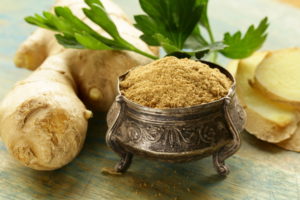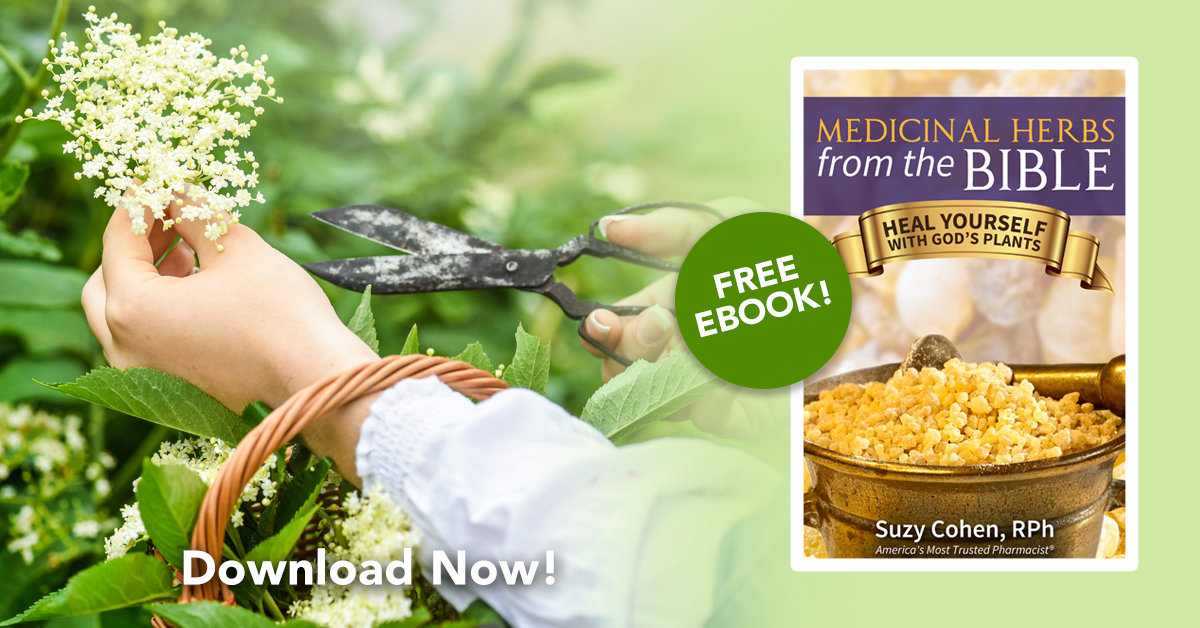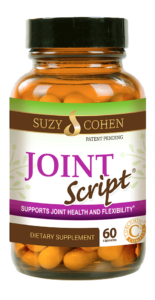What's On This Page?
ToggleGinger is something you’ve probably walked past a thousand times in the grocery store and probably passed up. It has incredible medicinal benefits and offers people a natural approach to many ailments. Many women use it for morning sickness during pregnancy. Sometimes you see it crystallized with sugar to improve flavor. But today I’m not talking about the candied version, I’m referring to fresh ginger root, or powdered form, which you can buy in any supermarket.

Known officially as Zingiber officinale, it contains many therapeutic compounds, all of which have well-documented medicinal actions in the body. One example is how the antibiotic tetracycline works better in the presence of it. The spice potentiates the actions of some calcium channel blockers (CCB) too, like nifedipine, making the hypotensive benefit even more pronounced.
In studies with people who took the dried spice, 75 percent experienced relief from arthritic pain and swelling.
Ginger Has Strong Pharmacological Activity
It contains dozens of compounds that have pharmacological activity. Some of them include gingerol, zingerone, shogaol, and paradol. Sometimes you have to heat it to extract a specific medicinal compound. For example, zingerone is negligible in fresh ginger, however, cooking it transforms the gingerol in ginger into zingerone! In case you’re wondering about powdered spice… yes, zingerone is present in that.
We think of it (either fresh or powdered) as a flavoring agent, but it is powerful medicine. It is an antioxidant and analgesic. It will thin the blood so you have to avoid it (or minimize it) if you take anticoagulant medications.
That said, if you’ve been including it in your meals routinely prior to beginning your blood thinning medication then your doctor will have no problem with the dosage of your drugs. The real concern is starting to eat a lot of ginger while you’re on a medication, which could be problematic and lead to a mucosal bleed.
Zingerone is Researched
Zingerone is well researched and it’s truly incredible. Studies have determined that it reduces inflammation, improves blood sugar, eases muscle pain and spasms, helps with arthritis, speeds fat breakdown, and ramps immune function.
In an animal STUDY, ginger compounds protected rodents from brain damage and memory loss! Scientists are researching ginger compounds to see if they can make a drug out of it and treat Alzheimer’s and atherosclerosis. Why don’t we just include some in our recipes for now?
There’s so much more too so when you’re at the grocery store, grab some ginger and bring it home to try it! Here’s a recipe for Ginger Orange Carrots.
If you want to add it to your brownies (because kids will get ginger down this way) try my recipe for Gingerbread Chocolate Brownies with Hazelnut.
If it has benefits for patients with Alzheimer’s, what about Parkinson’s?
Yes, it could be helpful due to the antioxidant properties and ability to quell ROS. And this is fascinating, animal studies suggest that it can influence serotonin synthesis, reducing anxiety almost as well as benzodiazepine medications.
It has many other different mechanisms of action, but one of them is how it can block xanthine oxidase. Blocking your enzyme xanthine oxidase is a good thing because it reduces free radicals (termed ROS for reactive oxygen species). The fact that it can degrade free radicals protects your DNA and mitochondria. In fact, it promotes mitochondrial health and regeneration in your cells. Your mito as you know stores energy for you in the form of ATP.
One thing is ginger’s ability to support healthy cytokines, and thereby manage levels of inflammatory cytokines in the body. Simply put, it could help with an “itis” condition if you have that. Now you may understand why I put this incredible herbal extract into my Joint Script Capsules which are for joints, cartilage, and flexibilty. There are Kollagen® peptides, boswellia, C3® curcumin and hyaluronic acid in that incredible formula as well. It’s a best-seller, and for good reason!!! Click on the picture if you have any desire to read reviews, or learn more about this.
Heavy Metals
It might have some heavy metal binding abilities, as it is known to reduce cadmium levels in animal studies. It can reduce the body’s burden on organophosphate pesticides! If you have a PON1 gene, make it your friend! It cannot bind gadolinium (from MRI contrast), but it may chelate mercury and arsenic while simultaneously reducing inflammation in the body. Not a bad combination.
It is a delicious, safe, and affordable way to improve health while adding a warming spice to your meals. You don’t need much ginger, just cut off about a half inch, peel it, and grate it into your soup or make a tea out of it. The recipe to make ginger tea is included in my article, 9 Amazing Natural Cough Suppressants to Shut You Up.
If you have liver disease, or hepatic injury (for example, alcohol-related, or hepatitis), consider ginger in all of your recipes because studies show that zingerone has a hepatoprotective effect, not the liver, and can suppress cytokines associated with liver injury and inflammation.
4 Reasons to Consume More
Let me summarize the medical benefits now. Here are four medical reasons to consider incorporating more into your diet, which as you’ve seen is very easy to do!

1. Digestive Health
Ginger is well-known for its positive effects on gastrointestinal health. It can help alleviate symptoms of nausea and vomiting, especially in cases of morning sickness during pregnancy, motion sickness, and after chemotherapy treatments. The zingy spice promotes faster emptying of your stomach in case you had one too many tacos! This can be help you with indigestion and constipation because it reduces pressure on the lower part of your intestine.
2. Anti-inflammatory and Analgesic Effects
Ginger contains bioactive compounds like gingerol, which have potent anti-inflammatory and antioxidant properties. These compounds can help reduce inflammation in conditions like osteoarthritis and rheumatoid arthritis, providing relief from pain and discomfort. Additionally, ginger’s anti-inflammatory effects can be beneficial in reducing muscle soreness and pain after intense physical activity.
3. Cardiovascular Health
Consuming ginger may have a positive impact on heart health. The spice has been shown to lower blood cholesterol levels and regulate blood pressure, both of which are risk factors for heart disease. Its special compounds can improve blood circulation and prevent blood clotting, reducing the risk of heart attacks and strokes.
4. Immune System Support
Ginger’s antioxidant properties can strengthen the immune system. The spice can help fight off infections and has been shown to be effective against certain bacteria and viruses. This makes ginger a valuable dietary addition, especially during cold and flu season or for individuals prone to frequent infections.
Summary
While ginger is generally considered safe for most people, it’s important to note that excessive consumption can lead to side effects such as heartburn, gas, and upset stomach. It’s also advisable to consult with a healthcare professional before making significant changes to your diet, especially if you have existing medical conditions or are pregnant.

Suzy Cohen, has been a licensed pharmacist for over 30 years and believes the best approach to chronic illness is a combination of natural medicine and conventional. She founded her own dietary supplement company specializing in custom-formulas, some of which have patents. With a special focus on functional medicine, thyroid health and drug nutrient depletion, Suzy is the author of several related books including Thyroid Healthy, Drug Muggers, Diabetes Without Drugs, and a nationally syndicated column.


